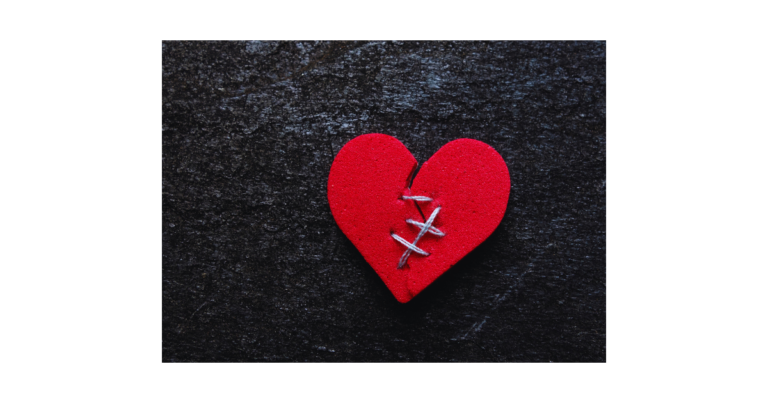Friendships are one of life’s greatest joys. Think about that one friend who’s been there for you through thick and thin, always ready to share a laugh or a shoulder to cry on. Now imagine the opposite—a friendship that leaves you feeling drained or questioning your worth. Recognizing the difference is key to protecting your well-being. They offer us support, laughter, and shared moments that make life more meaningful. But, sometimes, there are people who claim to be our friends, yet their actions tell a different story. Fake friends—people who pretend to care but are actually self-serving—are often involved in fake friendship, characterized by self-centered behavior, hidden agendas, and lack of mutual support. These relationships can drain us emotionally, impact our mental health, and leave us questioning the trust we place in others.
So how do you spot the signs of a fake friend? And what can you do to protect your well-being and keep your circle filled with genuine people who truly care about you?
What Defines True Friends vs. Fake Friends?
Friendships can be broadly divided into two categories: those based on genuine connection and those based on convenience or manipulation. Understanding this difference is key to identifying who truly belongs in your inner circle. Fake friends often do not have your best interests at heart and act primarily in self-serving ways.
Genuine Friends

Genuine friends celebrate your successes, share your struggles, and are there for you without expecting anything in return. They genuinely care about your happiness and well-being. Their actions match their words—when they say they’re there for you, they mean it. Whether it’s showing up in a crisis, offering emotional support, or simply spending quality time together, genuine friends make you feel valued. A true friend will always show genuine happiness for your achievements, which is a key indicator of the authenticity of the relationship.
Fake Friends
In contrast, fake friends are often more interested in what they can gain from you than in maintaining a meaningful relationship. They might act supportive but are quick to disappear when you need help. Fake friends often engage in conditional friendships—they’ll only be there for you if it benefits them. These relationships can leave you feeling used, emotionally drained, or questioning your worth. It is crucial to identify fake friends to protect yourself from untrustworthy relationships.
Key Signs of Fake Friends

Spotting fake friends requires paying attention to both their actions and the emotional impact they have on you. Here are some clear signs:
Behavioral Red Flags
- They “One-Up” YouEvery time you share something good in your life, they find a way to overshadow it with their own achievements. This constant competition can make you feel like your accomplishments don’t matter.
- Spreading RumorsFake friends often gossip about you behind your back. They may share your secrets with others or distort the truth to damage your reputation.
- Overly Nice But Conspicuously AbsentWhile they might shower you with compliments or act overly friendly, they’re nowhere to be found when you truly need support. Their niceness is often superficial and self-serving.
- Jealousy and CompetitionInstead of celebrating your wins, they become jealous or critical. They may downplay your successes or act resentful when good things happen to you. In contrast, a good friend supports you without jealousy and provides honest, constructive feedback.
- Conditional SupportThey only offer help or companionship when it’s convenient for them. If your friendship feels transactional, it’s a sign they’re not invested in a genuine connection.
Emotional Impact
- Feeling Drained: After spending time with them, you often feel emotionally exhausted or low. This is a sign that the relationship might be toxic.
- Questioning Your Worth: Fake friends can make you feel like you’re not good enough or that your feelings don’t matter.
- Inconsistent Support: They’re unreliable and inconsistent, leaving you to question their commitment to the friendship. In contrast, a real friend remains loyal and supportive, especially during challenging moments.
Types of Fake Friends
Fake friends can come in various forms, each with their own unique characteristics and behaviors. Understanding these different types can help you identify and navigate fake friendships more effectively.
The User
The User is a type of fake friend who only reaches out to you when they need something. They may ask for favors, advice, or emotional support, but they rarely offer anything in return. This type of friend often uses guilt or manipulation to get what they want, leaving you feeling drained and unappreciated.
Signs of a User:
- They only contact you when they need something.
- They rarely ask about your life or show interest in your well-being.
- They use guilt or manipulation to get what they want from you.
- They don’t respect your boundaries or prioritize your needs.
The Competitor
The Competitor is a type of fake friend who constantly tries to one-up you. Whether it’s comparing achievements, possessions, or relationships, they always find a way to make you feel inferior or inadequate. This type of friend may also try to sabotage your efforts or undermine your confidence.
Signs of a Competitor:
- They constantly compare themselves to you.
- They try to one-up you in conversations or on social media.
- They make you feel inferior or inadequate.
- They may sabotage your efforts or undermine your confidence.
The Narcissist
The Narcissist is a type of fake friend who is excessively self-absorbed and lacks empathy. They dominate conversations, interrupt you, and dismiss your feelings and needs. This type of friend may also use gaslighting tactics to manipulate you into doubting your own perceptions or sanity.
Signs of a Narcissist:
- They dominate conversations and interrupt you.
- They lack empathy and dismiss your feelings and needs.
- They use gaslighting tactics to manipulate you.
- They are excessively self-absorbed and prioritize their own needs above yours.
Why Fake Friends Hurt More Than You Think

Fake friendships can have a profound impact on your emotional and mental health. Here’s why:
- Erosion of Trust: Experiencing betrayal or dishonesty in a friendship can make it difficult to trust others in the future.
- Mental Health Struggles: The constant stress of dealing with fake friends can lead to anxiety, depression, or feelings of isolation.
- Self-Esteem Damage: Being around someone who diminishes your worth can take a toll on your confidence and self-esteem. Family members can play a crucial role in rebuilding your self-esteem and providing a supportive environment.
The emotional energy you spend on fake friends can detract from your ability to nurture genuine relationships, leaving you feeling isolated and unsupported.
How to Identify and Deal with Fake Friends
Recognizing Fake Friends
The first step to addressing fake friendships is awareness. Reflect on your interactions and assess whether the relationship is reciprocal. Ask yourself:
- Do they genuinely care about my feelings and well-being?
- Are they there for me when I need support?
- Do I feel good about myself after spending time with them?
If the answer to these questions is consistently “no,” it’s time to reevaluate the friendship. Real friends provide emotional support and take responsibility for their actions, fostering a healthier and more balanced relationship.
Setting Boundaries
Setting boundaries is essential for protecting your emotional health. Here’s how to do it:
- Communicate Clearly: Let them know how their behavior affects you. Use “I” statements to avoid sounding accusatory (e.g., “I feel hurt when you…”).
- Limit Interaction: Reduce the time you spend with them if the friendship feels draining or one-sided.
- Focus on Self-Care: Prioritize your own needs and surround yourself with supportive people who uplift you. A true friend will respect your boundaries and contribute positively to your well-being.
Moving On

If a friendship is beyond repair, it’s okay to walk away. Ending a toxic relationship can be difficult, but it’s often necessary for your well-being. Remember, letting go of a fake friend makes space for more genuine connections in your life.
Ending a Toxic Friendship
Ending a toxic friendship can be challenging, but it’s often necessary for your emotional well-being. Here are some tips for ending a toxic friendship:
Direct and Honest Conversations
Having a direct and honest conversation with your fake friend can be an effective way to end the friendship. Be clear and assertive about your boundaries and needs, and explain why you feel the friendship is no longer serving you.
Tips for having a direct and honest conversation:
- Be clear and assertive about your boundaries and needs.
- Explain why you feel the friendship is no longer serving you.
- Use “I” statements to express your feelings and avoid blame.
- Set boundaries and prioritize your own needs.
- Be prepared for resistance or pushback from your fake friend.
Remember, ending a toxic friendship can be difficult, but it’s often necessary for your emotional well-being. Prioritize your own needs and surround yourself with genuine friends who support and care for you.
Building and Nurturing Genuine Friendships

True friendships are built on mutual respect, trust, and care. Here are some ways to foster meaningful relationships:
- Prioritize Quality Over Quantity: It’s better to have a few close, trustworthy friends than a large group of superficial connections.
- Be Authentic: Share your true self and encourage others to do the same. Authenticity strengthens bonds.
- Show Up: Be there for your friends in both good times and bad. Reliability is a cornerstone of genuine friendship. Good friends provide support during both challenging and joyful times, contributing to better mental and physical health.
- Celebrate Successes: Share in their joy and let them know you’re genuinely happy for their achievements.
The Role of Self-Care and Emotional Resilience

Dealing with fake friends can be emotionally taxing. Here are some self-care tips to help you stay resilient:
- Focus on Your Own Needs: Spend time doing things that bring you joy and fulfillment.
- Practice Mindfulness: Stay present and grounded to avoid being overwhelmed by negative emotions.
- Strengthen Your Support Network: Surround yourself with people who genuinely care about you.
Conclusion
Recognizing fake friends is crucial to maintaining your mental health and emotional well-being. By identifying the signs, setting boundaries, and prioritizing genuine connections, you can protect yourself from the harm caused by toxic relationships. Remember, true friends are out there, and you deserve friendships that uplift and support you.
FAQs
Q1: How can I confront a fake friend?
Approach the conversation calmly and explain how their behavior makes you feel. Use clear and respectful language to set boundaries.
Q2: Should I stay friends with someone who is fake?
If the friendship is harmful to your mental health or self-esteem, it’s better to let go. Prioritize your well-being.
Q3: Can fake friends negatively impact my mental health?
Yes, fake friends can cause emotional distress, anxiety, and low self-esteem. Addressing these relationships is essential for your well-being.
Additional Resources
- Psychology Today – How to Spot Fake Friends
- Verywell Mind – How to Handle Fake Friends
- MindTools – How to Set Healthy Boundaries
By exploring these resources, you can gain deeper insights into managing friendships and prioritizing your well-being.





